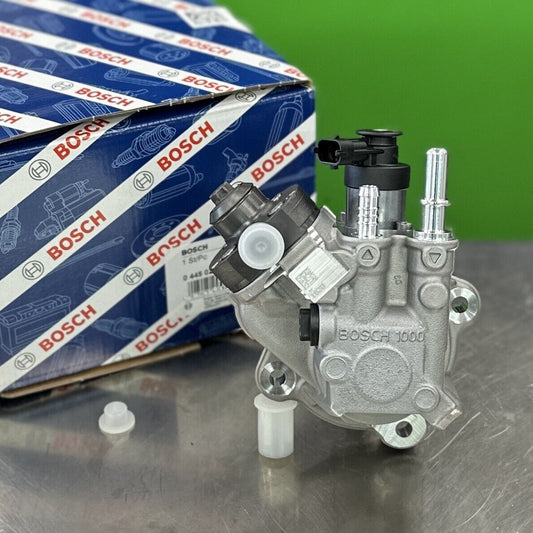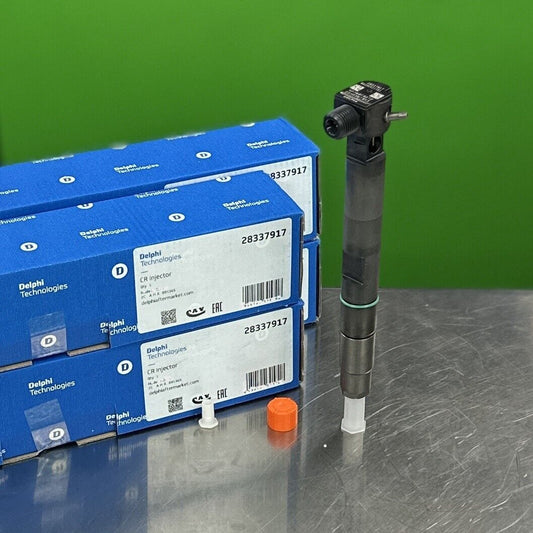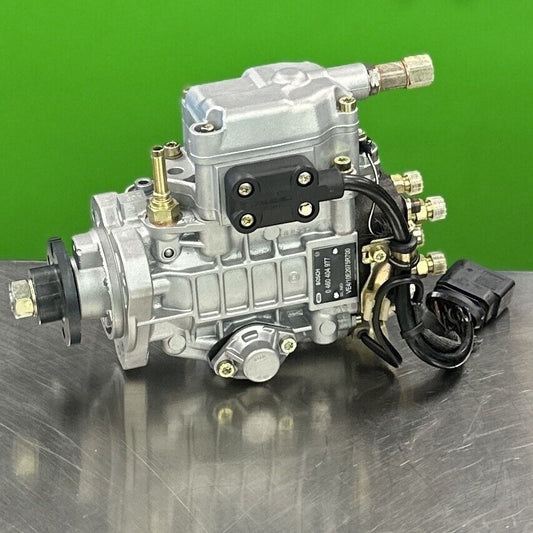Fuel Injector 101: Everything You Need to Know
Fuel injectors are the unsung heroes of your vehicle's engine, responsible for delivering the precise amount of fuel needed for optimal combustion. Just like a skilled chef carefully measuring ingredients for a perfect dish, fuel injectors ensure that your engine runs smoothly and efficiently. But there's more to these small components than meets the eye. Let's dive into the world of fuel injectors and uncover everything you need to know to keep your engine running at its best.
Function of Fuel Injectors
The in a vehicle's engine is crucial for efficient operation. These components are responsible for delivering the precise amount of fuel into the combustion chamber at the right time. Think of fuel injectors as the precision engineers of your car's fuel system, ensuring that the engine receives the optimal fuel-air mixture for combustion.
Imagine a scenario where fuel injectors are like chefs in a gourmet kitchen, carefully measuring and injecting the perfect ingredients into a recipe to create a masterpiece dish. Similarly, fuel injectors meticulously control the fuel flow into the engine, allowing for smooth and consistent performance.
One of the main advantages of fuel injectors is their ability to atomize fuel into tiny droplets, promoting better combustion efficiency. This atomization process ensures that fuel mixes evenly with air, leading to cleaner emissions and improved fuel economy.
Unlike carburetors, which rely on airflow to draw fuel into the engine, fuel injectors provide a more precise and controlled method of fuel delivery. This precision not only enhances engine performance but also contributes to reduced emissions and better overall fuel efficiency.
Types of Fuel Injectors
When it comes to fuel injectors, understanding the different types is crucial in optimizing your engine's performance. There are several variations of fuel injectors available, each with its unique characteristics and advantages. Let's delve into the world of fuel injectors and explore the various types:
1. Port Fuel Injectors: Port fuel injectors are commonly found in older vehicles and some modern engines. They are positioned in the intake manifold near the intake port of each cylinder. This type of injector sprays fuel into the intake port, allowing it to mix with the incoming air before entering the combustion chamber.
2. Direct Fuel Injectors: Direct fuel injectors, also known as gasoline direct injectors (GDI), are prevalent in modern engines for their efficiency and performance benefits. Unlike port injectors, direct injectors spray fuel directly into the combustion chamber, resulting in better fuel atomization and precise control over the fuel-air mixture.
3. Throttle Body Injectors: Throttle body injectors are positioned in the throttle body assembly, which regulates the airflow into the engine. While less common in newer vehicles, they were popular in older models. Throttle body injectors spray fuel upstream of the intake manifold, allowing it to mix with the incoming air before reaching the cylinders.
Each type of fuel injector has its advantages and disadvantages, influencing factors such as fuel efficiency, power output, and emissions. Understanding the differences between these injectors can help you make informed decisions when it comes to upgrading or maintaining your vehicle's fuel system.
Maintenance Tips for Fuel Injectors
When it comes to ensuring the longevity and optimal performance of your fuel injectors, regular maintenance is key. By following some simple yet effective maintenance tips, you can prevent potential issues and keep your engine running smoothly. Let's delve into some essential maintenance practices for fuel injectors:
- Use High-Quality Fuel: The quality of fuel you use directly impacts the cleanliness and efficiency of your fuel injectors. Opt for high-quality fuel from reputable sources to minimize the risk of clogs and buildup.
- Regular Inspections: Periodically inspect your fuel injectors for any signs of leaks, clogs, or damage. Addressing issues early can prevent more significant problems down the line.
- Professional Cleaning: Consider getting your fuel injectors professionally cleaned as part of your routine maintenance schedule. This can help remove any stubborn deposits and improve fuel atomization.
- Replace Fuel Filters: Ensure that your fuel filters are replaced at the recommended intervals. Clogged fuel filters can strain the fuel injectors and lead to performance issues.
- Use Fuel Additives: Utilize fuel additives designed to clean and protect fuel injectors. These additives can help prevent deposits from forming and maintain injector efficiency.
- Monitor Fuel System Pressure: Keep an eye on your fuel system pressure to detect any irregularities that could indicate fuel injector problems. Address pressure issues promptly to prevent damage.
- Check for Vacuum Leaks: Vacuum leaks can affect the performance of fuel injectors. Regularly inspect and address any vacuum leaks to ensure proper fuel delivery.
By incorporating these maintenance tips into your routine, you can extend the lifespan of your fuel injectors and optimize the performance of your engine. Remember, a well-maintained fuel system leads to a smoother driving experience and improved fuel efficiency. Take care of your fuel injectors, and they will take care of your engine!
Troubleshooting Common Fuel Injector Problems
When it comes to troubleshooting common fuel injector problems, it's crucial to understand the signs that indicate potential issues with your vehicle's fuel delivery system. One of the most common problems encountered with fuel injectors is poor fuel atomization, which can lead to inefficient combustion and reduced engine performance. If you notice symptoms such as rough idling, decreased fuel efficiency, or a noticeable decrease in power, it may be time to inspect your fuel injectors.
Leakage is another prevalent issue that can arise with fuel injectors, causing fuel to seep out and potentially create a fire hazard. It's essential to address any leaks promptly to prevent safety hazards and ensure the proper functioning of your vehicle. Regularly inspecting the fuel injectors for any signs of leakage, such as fuel odors or visible drips, can help you catch and resolve the problem early on.
Misfiring is a serious concern that can indicate a malfunctioning fuel injector. When a fuel injector fails to deliver the right amount of fuel to a specific cylinder, it can result in misfiring, which can lead to engine damage if left unresolved. If you experience consistent misfiring, it's crucial to diagnose the issue promptly and replace any faulty fuel injectors to prevent further complications.
To effectively troubleshoot common fuel injector problems, you can perform various diagnostic tests to pinpoint the exact issue affecting your vehicle's performance. Utilizing specialized tools like fuel pressure gauges and diagnostic scanners can help you identify the root cause of the problem and take appropriate measures to rectify it. Additionally, consulting a professional mechanic for thorough inspection and diagnosis can provide valuable insights into resolving complex fuel injector issues.
By staying vigilant and proactive in addressing common fuel injector problems, you can ensure the optimal performance and longevity of your vehicle's fuel delivery system. Regular maintenance, timely repairs, and proactive troubleshooting are key to keeping your fuel injectors in top condition and maximizing your engine's efficiency and power output.
Enhancing Performance with Fuel Injectors
When it comes to enhancing the performance of your vehicle, fuel injectors play a crucial role in optimizing fuel delivery and maximizing engine efficiency. Upgrading your fuel injectors can significantly impact your engine's power output and overall performance. Think of it as giving your engine a boost of energy, allowing it to operate at its full potential.
One way to enhance performance with fuel injectors is by opting for high-flow injectors that can deliver a greater volume of fuel to the combustion chamber. This upgrade can result in improved acceleration, smoother idling, and enhanced overall responsiveness of your vehicle. It's like upgrading from a regular fuel supply to a premium, high-octane fuel that unleashes the full power of your engine.
Another method to boost performance is by optimizing fuel atomization, which refers to the process of breaking down fuel into tiny droplets for better combustion. Upgraded fuel injectors with advanced atomization technology can ensure more efficient fuel burning, leading to increased horsepower and torque. It's like fine-tuning a musical instrument to produce harmonious melodies with every rev of the engine.
Furthermore, enhancing fuel delivery precision can have a significant impact on your engine's performance. By installing fuel injectors with superior spray patterns and precise fuel metering capabilities, you can achieve better fuel distribution and combustion efficiency. This results in a smoother-running engine, improved fuel economy, and a more exhilarating driving experience. It's akin to upgrading from a standard paintbrush to a high-tech airbrush for precise and flawless painting.
Ultimately, upgrading your fuel injectors is not just about increasing power output; it's also about optimizing the overall performance and efficiency of your vehicle. By investing in quality fuel injectors and ensuring proper installation, you can unleash the full potential of your engine and enjoy a thrilling driving experience like never before. It's like giving your vehicle a performance makeover, transforming it into a high-performance machine that delivers excitement at every turn.
Frequently Asked Questions
-
What is the function of fuel injectors?
Fuel injectors play a crucial role in delivering the precise amount of fuel into the combustion chamber of an engine for efficient operation. They ensure the proper air-fuel mixture ratio, contributing to optimal performance and fuel efficiency.
-
What are the different types of fuel injectors?
There are several types of fuel injectors, including port fuel injectors, direct fuel injectors, and throttle body injectors. Each type has its unique characteristics and performance capabilities, catering to different engine requirements and fuel delivery methods.
-
How can I maintain fuel injectors?
To maintain fuel injectors effectively, regular cleaning and inspection are essential. Using high-quality fuel, keeping the injectors free from dirt and debris, and utilizing fuel injector cleaning additives can help prevent clogging and ensure smooth operation.
-
What are common fuel injector problems and how can they be addressed?
Common fuel injector issues include poor fuel atomization, leaks, and misfiring. These problems can be addressed through thorough diagnosis, cleaning, or replacement of faulty components, ensuring proper fuel flow and combustion within the engine.
-
How can fuel injectors enhance engine performance?
Upgrading fuel injectors, optimizing fuel delivery systems, and improving fuel atomization can significantly enhance engine performance. By ensuring the precise delivery of fuel and air mixture, fuel injectors contribute to increased power output and fuel efficiency.



